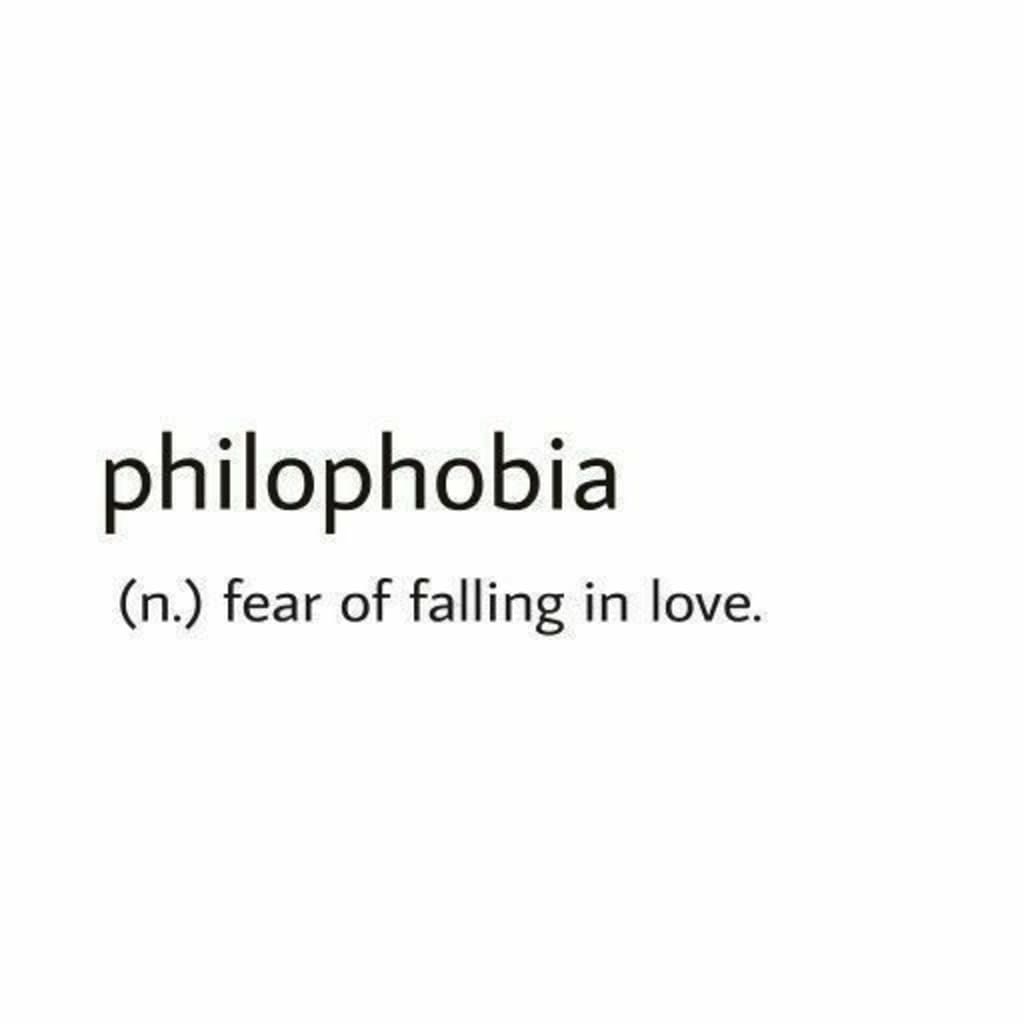PHILOPHOBIA
Navigating The Complex Terrain of Fear and Love

Title: Philophobia: Navigating the Complex Terrain of Fear and Love
Introduction
Love, the cornerstone of human connection, has the potential to inspire profound emotions, vulnerability, and growth. However, for some individuals, the prospect of love can elicit a gripping and paralyzing fear known as philophobia. This intricate psychological condition has been the subject of extensive study and contemplation, as it presents challenges to forming intimate relationships and embracing emotional vulnerability. In this article, we delve into the depths of philophobia, exploring its origins, symptoms, and potential treatment avenues to empower those who struggle with this fear to find their way towards love and emotional fulfillment.
Understanding Philophobia
Philophobia stems from the Greek word "philo," meaning love, and "phobia," meaning fear. Thus, philophobia can be defined as an irrational and intense fear of love or emotional attachment. It is essential to differentiate between a natural apprehension towards love, common in the early stages of a relationship, and philophobia, which goes far beyond these initial anxieties.
The Roots of Philophobia
The origins of philophobia are multifaceted, often rooted in past experiences, cultural influences, and individual psychology. Early-life experiences, such as witnessing turbulent relationships or experiencing heartbreak and rejection, can leave lasting imprints on a person's emotional landscape. Traumatic events can create psychological defense mechanisms that seek to shield individuals from potential emotional harm by avoiding intimate connections altogether.
Cultural norms and societal expectations also contribute to the development of philophobia. In a world inundated with romanticized ideals of love through media, literature, and social media, individuals may feel overwhelmed by unrealistic expectations or fear judgment if they fail to achieve these ideals. The fear of vulnerability, rejection, and loss of autonomy can further solidify their aversion to forming intimate connections.
Symptoms and Manifestations
Philophobia can manifest in various ways, and its symptoms may differ from one individual to another. The fear of love can evoke intense anxiety, leading to physical symptoms such as rapid heartbeat, sweating, trembling, and difficulty breathing. These symptoms can be triggered by the mere thought of engaging in a romantic relationship or by the prospect of emotional intimacy.
Those afflicted with philophobia may exhibit avoidance behaviors to protect themselves from perceived emotional threats. They may shy away from opportunities for romantic involvement, sabotaging potential relationships as a preemptive measure to avoid possible pain or rejection. These avoidance behaviors can lead to feelings of isolation, loneliness, and a deep sense of longing for meaningful connections.
Confronting Philophobia: Treatment and Coping Strategies
Acknowledging and addressing philophobia is a crucial step towards overcoming this fear and embracing the possibility of love and emotional connection. Several therapeutic approaches and coping strategies can help individuals navigate their journey towards healing:
1. Professional Therapy: Seeking guidance from a licensed therapist or counselor can be instrumental in understanding the roots of philophobia and working through underlying emotional traumas. Cognitive-behavioral therapy (CBT) can help identify and challenge negative thought patterns and develop healthier coping mechanisms.
2. Exposure Therapy: Gradual exposure to situations involving emotional vulnerability can desensitize individuals to the fear of love. This approach involves facing fears in a safe and controlled environment, allowing individuals to develop confidence and emotional resilience.
3. Mindfulness and Self-Compassion: Practicing mindfulness can help individuals become more aware of their thoughts and feelings, allowing them to approach their fears with self-compassion and understanding.Engaging in self-reflective practices, such as journaling, can foster self-awareness and personal growth.
4. Supportive Environment: Surrounding oneself with understanding and empathetic friends and family can create a safe space for open communication about emotions and fears related to philophobia. Having a support system can alleviate feelings of isolation and provide encouragement during the recovery process.
Conclusion
Philophobia represents a complex and challenging psychological condition that affects the way individuals perceive and experience love. While deeply rooted in past experiences and cultural influences, it is essential to remember that healing is possible. By embracing therapeutic approaches, practicing self-compassion, and building a supportive environment, those struggling with philophobia can embark on a journey of self-discovery, unlocking the potential for meaningful and fulfilling relationships. Remember, fear may be a part of the human experience, but it need not define or confine us. Ultimately, by confronting philophobia, we open ourselves to the transformative power of love and emotional connection, enriching our lives in ways we may have never imagined.





Comments
There are no comments for this story
Be the first to respond and start the conversation.